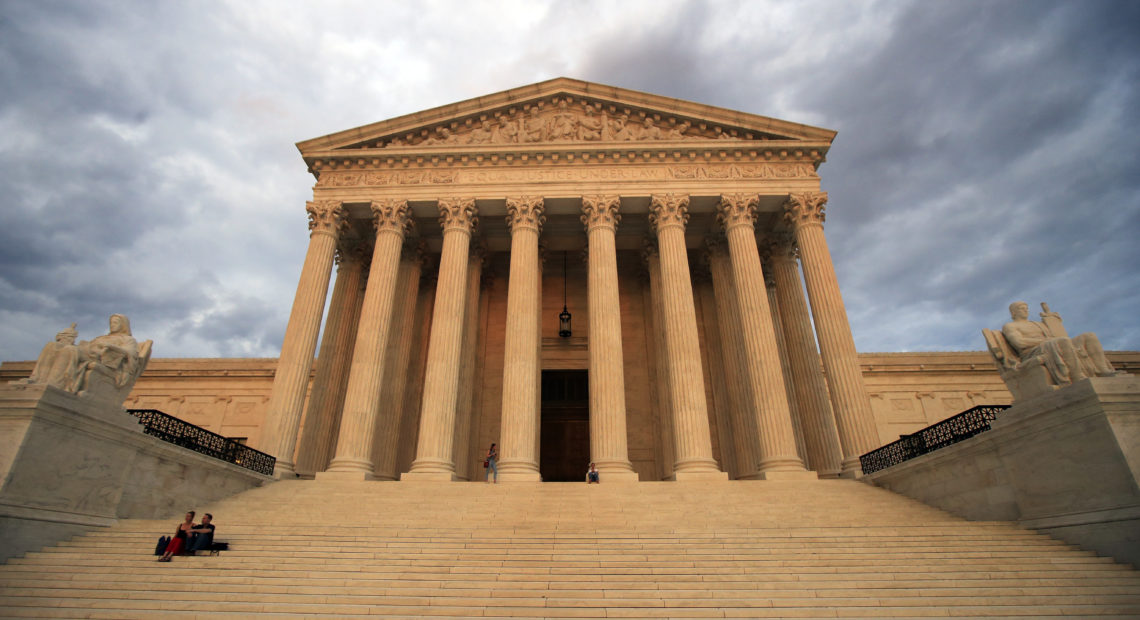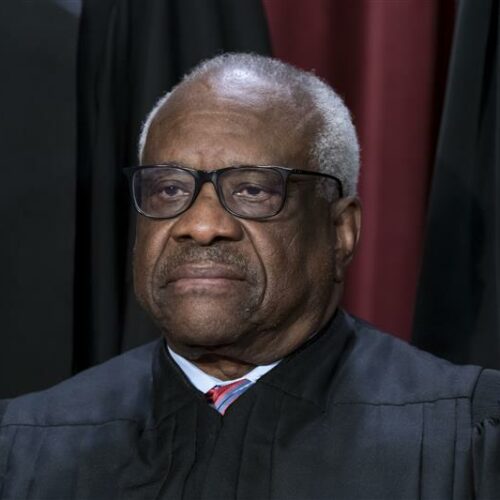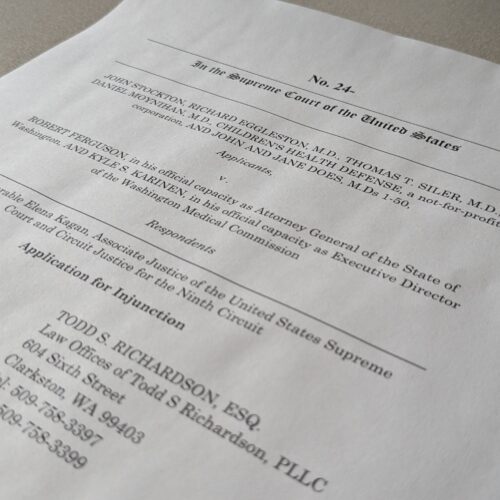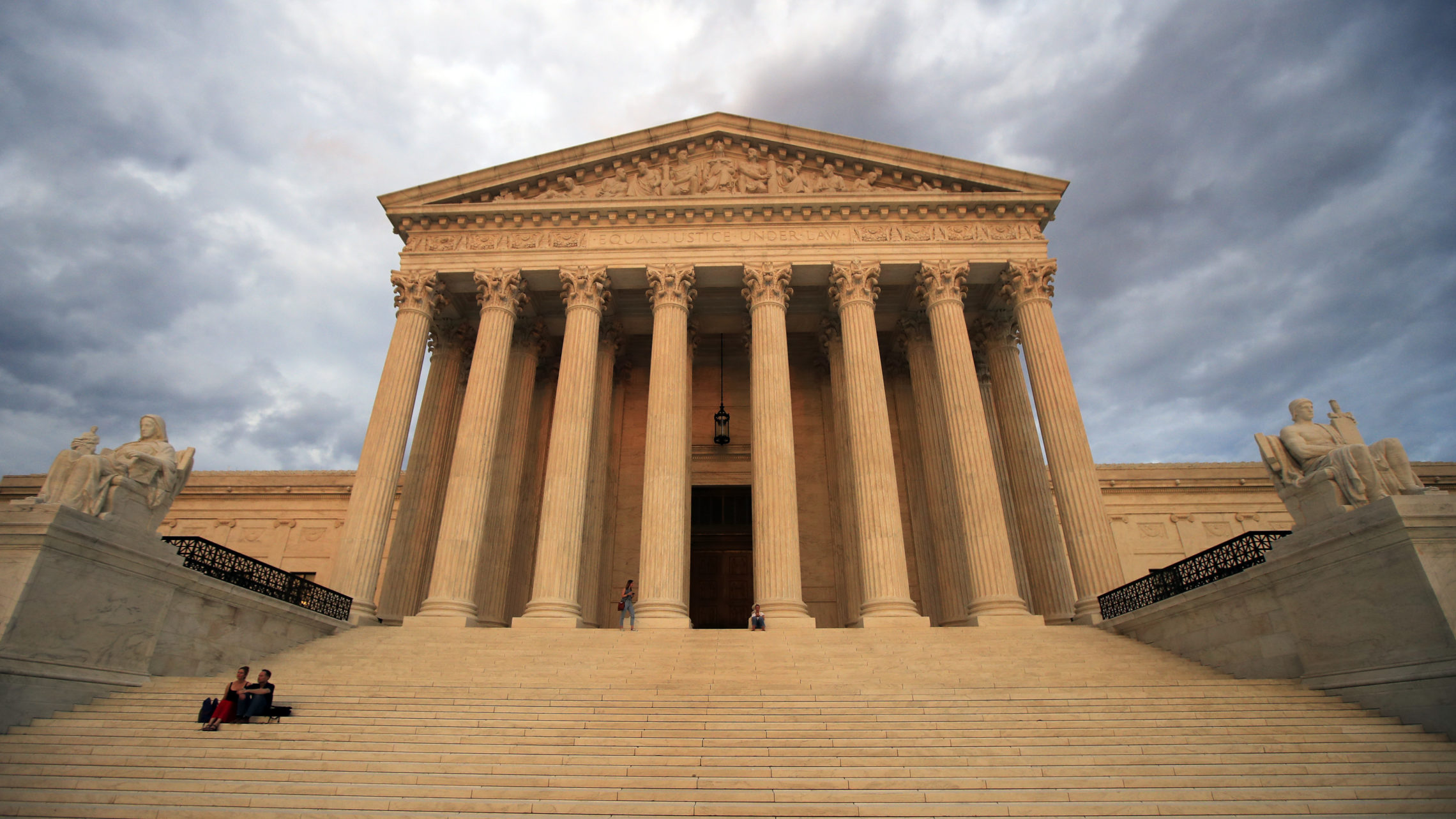
U.S. Supreme Court Hears Case That Could End Non-Unanimous Juries In Oregon
Read On
BY CONRAD WILSON / OPB
The U.S. Supreme Court kicks off its new term Monday with a case that has potentially sweeping implications for Oregon, and could end the state’s non-unanimous jury system.
The court will hear arguments in Ramos v. Louisiana, which stems from a 2014 murder in New Orleans. However the high court rules, the effects will almost certainly be felt in Oregon, the lone state in the country where juries can render a verdict without unanimity. In Oregon, criminal defendants — excluding those charged with murder — can be found guilty by juries of 10-2 or 11-1.
The Supreme Court is revisiting the issue of non-unanimous juries for the first time since 1972, when the justices ruled in Apodaca v. Oregon that non-unanimous juries in state criminal courts are permitted under the U.S. Constitution. In agreeing to hear the case, legal observers say the court could, in a rare move, overturn itself.
“If the Supreme Court finds that Louisiana’s non-unanimous jury rules violate the U.S. Constitution, Oregon would need to change our law and require unanimous juries in criminal cases,” said Aliza Kaplan, a professor at Lewis and Clark Law School in Portland and critic of split juries.
The case before the justices relates to a 2014 crime, when a New Orleans city code enforcement officer found the body of Trinece Fedison stuffed in a trash can in a wooded area behind a blighted property. After a two-day trial in 2016, a jury convicted Evangelisto Ramos of second-degree murder by a verdict of 10-2, meaning two jurors thought Ramos was not guilty.
In 2018, Louisiana voters approved a ballot measure doing away with non-unanimous juries, leaving Oregon as the only state with a non-unanimous jury rule.
The issue the Ramos case presents for the justices is whether the Constitution “guarantees state criminal defendants the right to a unanimous jury verdict.”
The court could use its sweeping powers to abolish non-unanimous juries, uphold them or find some middle ground.
Opponents of non-unanimous juries point out they allow for guilty convictions when there’s doubt. They also argue, historically, non-unanimous juries have been used as a tool for discrimination. In Louisiana, they were passed after the Civil War as part of a document known as the Constitution of White Supremacy. The idea was to make it easier to convict black defendants. In Oregon, voters approved non-unanimous juries in 1934 at a time when the Ku Klux Klan was powerful in the state and anti-immigrant sentiment was high.
Supporters of non-unanimous juries argue they lead to fewer hung juries and a more efficient criminal justice system, but those defenders are becoming harder to find.
Since 2016, support has grown across Oregon for scrapping non-unanimous juries, a rare point of agreement between lawmakers, district attorneys and criminal justice reform activists. During the last legislative session, the Oregon District Attorneys Association spoke out against non-unanimous juries and backed a bill that would’ve put the issue before voters in 2020. The legislation died after the Supreme Court agreed to hear the Ramos case.
“We believe it was good policy to align ourselves with the rest of the country and ensure that no juror’s voice is ignored during jury deliberations,” said Tim Colahan, executive director of the Oregon District Attorneys Association. “Adding the requirement of unanimity is another important safeguard against both wrongful convictions and wrongful acquittals.”
But heading into Monday’s arguments, Oregon officials are divided about whether the Supreme Court should be weighing in on the issue at all.
In June, a group of former state Supreme Court justices, appeals court judges, law school deans and governors signed onto an amicus brief urging the court to overturn Apodaca and rule that non-unanimous juries are not constitutional.
Those supporters included Oregon Gov. Kate Brown.
But in a separate brief filed with the court, Oregon Attorney General Ellen Rosenblum cautioned against doing away with non-unanimous juries. The state’s legal position before the court comes down on the side of asking the justices to uphold Ramos’ conviction.
While Rosenblum supports a ballot measure to change Oregon’s constitution, she warned that Supreme Court action could lead to chaos in the state’s court system.
“The problem is if the U.S. Supreme Court, if it overturns Apodaca, this is going to impact hundreds if not thousands of criminal convictions in Oregon over the past 47 years,” Rosenblum said in an interview with OPB in August. “That would be an overwhelming problem for our justice system.”
Supporters of ending non-unanimous juries have questioned whether Rosenblum’s estimates are inflated.
“I would’ve much preferred to not to have to write this brief,” Rosenblum said. “I would’ve much preferred that the United States Supreme Court would not have allowed this case to go forward out of Louisiana at this time.”
The brief has angered some who say this is Oregon’s opportunity to change policy.
Rep. Jennifer Williamson (D-Portland), who sponsored legislation that would put the issue before voters, said she’s “deeply disappointed that our attorney general would put bureaucratic efficiency above the rights of Oregonians.”
Williamson said the state Department of Justice has acknowledged that non-unanimous juries exacerbate racial disparities across the criminal justice system.
“It’s not a process we can be OK with,” she said. “It’s certainly possible they’re taking it up to overturn Apodaca. I can’t say that definitely, but it would be my best guess.”
Williamson and other advocates hope the justices rule before they’d have to decide about placing a measure on the November 2020 ballot. If they rule non-unanimous juries are still permitted under the U.S. Constitution, activists could still mount an effort to put the issue before voters in Oregon.
Copyright 2019 Oregon Public Broadcasting. To see more, visit opb.org
Related Stories:

US Supreme Court will consider petition for stay in COVID-19 free speech case
The U.S. Supreme Court will review an application for a stay in a federal lawsuit involving local retired eye doctor Richard Eggleston.

Group representing retired Clarkston ophthalmologist asks US Supreme Court for injunctive relief
A retired Clarkston eye doctor is part of a group asking the U-S Supreme Court to grant an injunction in a lawsuit against Washington state officials.

Idaho doctors say emergency abortion protections are welcome, but not enough
Screenshots of panelists during a press conference on Thursday. Clockwise from top left: Susie Pouliot Keller, chief executive officer of the Idaho Medical Association; Dr. Duncan Harmon, a maternal fetal
















